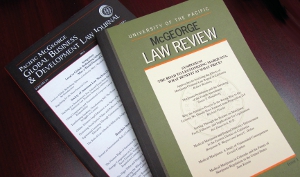Document Type
Article
Publication Date
2018
Abstract
Can judges interpret the law in a manner that is objectively verifiable, or do judges necessarily – even if unconsciously – inject their own predispositions and biases into their decisions? It is difficult to decide whether such a question is frivolous in the post-Realist age, or whether it is the is the single most important question that we can ask about our legal system. I endorse both responses. The question, as phrased, is both vitally important and unanswerable on its own terms. Rather than seeking an elusive objective standard by which to measure the correctness of “a judgment,” I argue that we need to develop a vocabulary to assess whether judges are “judging well,” because it is the activity of judging well that serves as the cornerstone of the rule of law.
The article unfolds in three parts. First, I briefly review Professor William Popkin’s admirable work as a starting point for analysis. Drawing on Kantian aesthetics, Popkin defends the ability to assess nondeductive judgments. I develop his conception of “ordinary judgment” along different lines, arguing for a conception of “judging well” that is rooted in practical reasoning as articulated rhetorically. Leslie Paul Thiel brings contemporary work in neuroscience to bear on what I term “rhetorical knowledge.”
Publication Title
Wash. U. Jurisprudence Rev.
Volume
11
First Page
1
Recommended Citation
Francis J. Mootz III, Judging Well, 11 Wash. U. Jurisprudence Rev. 1 (2018)



